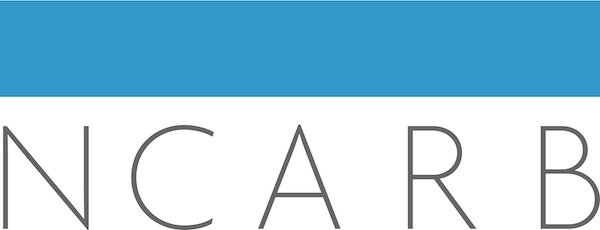As a leading voice in the architecture industry, Professor Nea Maloo works to bridge the gap between academia and the profession through partnerships with diverse organizations and governmental agencies.
Professional Leadership
As a leading voice in the architecture industry, Professor Nea Maloo works to bridge the gap between academia and the profession through partnerships with diverse organizations and governmental agencies.
2019-Present
2020-2022
2020-2022
2020
2014-Present
2018-2019
2018
2017
2000
AIA, Emeritus Higher Education Advisory Group
Co-chair, Committee in Education AIADC
Member, Disaster Planning Committee
AIA DC Trained Evaluator Disaster Safety Assessment, AIA
Faculty Mentor, AIAS, Howard University
Elected Representative
Faculty Advisor
Faculty Mentor
Leadership and Mentoring
American Institute of Architects (AIA)
National Council of Registration Board (NCARB)
2022-2023
2020-2022
2021
Appointed Volunteer Experience Committee, Educator Position, NCARB Appointed Volunteer Test Prep Review Committee, Project Planning and Documentation, NCARB Appointed Volunteer, Architects Registration Exam 5.0 Exam item development sub-Committee member
Developed and co-moderator, pre-summit DEI, Architect Licensing Advisor Developed and co-moderator, professional practice professors, Architect Licensing Advisor
Project Development and Documentation, NCARB
“Maloo’s passionate teaching style, strong leadership skills, knowledge, willingness to help and inspirational methods were consistently praised. Among other things, she participated in several events and positively represented the college and students in internal and external settings.”
NCARB Professional Practice Scholars, 2021 Collaborator
2018-2020
Research Partnerships
Professor Nea Maloo collaborates with several researchers and institutions, strengthening academic research partnerships to foster discourse and knowledge sharing. Nea Maloo molds her teaching of architecture in a way that engages art, science, social sciences, and, most importantly, people.
-
Role: Principal Investigator
Collaborators: Healthy Building Network
$23,000, 2021-22 Plan and implement student-designed research projects that address building materials’ human and environmental health impacts, especially in the context of affordable housing design and environmental justice implications of material selections.
-
Role: Principal Investigator
Collaborators: Water Resources Research Institute (WRRI)This project aims to develop strategies for water conservation and sustainability at Howard University. It promotes students’ environmentally appropriate water consumption behavior and provides undergraduate research and training opportunities. $30,000 2019.
-
Role: Team member, National Science Foundation Convergence accelerator
Collaborators: Howard University, Southern Illinois University, Army Core of Engineers
Developing Artificial Intelligence (AI)-driven Infrastructure Safety Monitoring platform to accurately judge infrastructure health and inform maintenance, repair, and replacement decisions. It will provide accurate and timely information about an infrastructure’s health for decision-makers to prioritize decisions. $750,000, 2020-21.
-
Role: Advisor for Architecture Students, Department of Education
Collaborators: Civil Engineering, Physics, Biology, and Math Departments, Howard UniversityThe I-RISE program extends opportunities for paid research experience, networking with industry partners, and inroads to professional work to underrepresented first- and second-year students in STEM disciplines. It focuses on students with GPAs of 2.00-3.00 or non-scholarship at the first- and second-year student levels, stimulating scientific interest through participation in real-world, hands-on research projects in the early years of STEM education to boost retention and graduation rates. $1,000,000, 2019-2021.
Invited Scholarships
Professor Maloo’s research, collaborative leadership, and publications provide tools for architectural educators nationally and internationally toolkits for the built environment. In addition, she connects research to them to more effective ways of addressing sustainability, health, and equity.
-
2018-Present
She was the Scholar to present her research on positive outcomes for Biophilic design for opioid addiction. She has collaborated with doctors, managers, and researchers to have meaningful discussions on how to have actionable research reach the built environment. Maloo has expanded to organize the symposium in 2022 and will moderate equity, diversity, and inclusion as policy.
-
Research Group Advisor, Fitwell Active Design
As a member of CfAD Research Advisory, Maloo contributes to leveraging research as a tool and driving the healthy building movement. The Fitwel Standard is currently being implemented across more than 2,700 buildings, reaching more than 1,450,000 individuals. The research contribution has led to a new Fitwell platform, which offers just that: a viable entity-wide approach for consistently tracking and integrating people-centric metrics to quantify the “S” in ESG ( Environmental, Social, and Governance).
-
Buell Center, Curricular Workshop 2020
Professor Nea Maloo was among the twenty-six nationally selected professors for Buell Center curricular workshop. With their dialogue and research, Maloo contributed to the new workshop’s content and production, which led to the production of the book Green Reconstruction, a Curricular Toolkit for the Built Environment. As a result, more than one hundred university professors now reference and use the toolkit to create change in teaching the next generation to address equity and climate change.
-
National Science Foundation Research
Nea Maloo was among the internationally invited researchers to contribute to the National Science Foundation Research on well-being building. As a result, the foundation leveraged and achieved resources from 33 existing networks and partners in North America, Africa, Europe, Australia, and Asia. In addition, Nea Maloo partnered with other participants to develop and implement community standards, including data collection from buildings in other countries.






